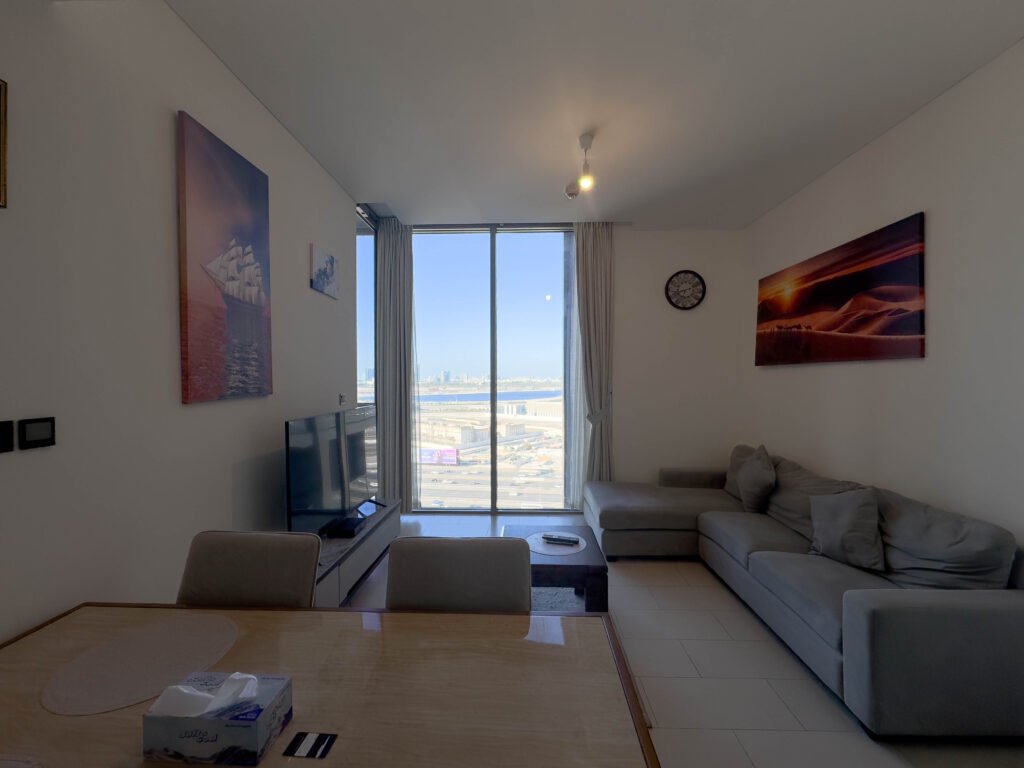1 Of The Top Powerful Benefits of Airbnb Rentals, Rental Yield Optimization, and Legal Aspects.
Why Airbnb Rentals Are a Great Investment
The short-term rental market has transformed the real estate industry, offering property owners a lucrative opportunity to maximize their rental yield. Platforms like Airbnb provide a flexible way to generate income while offering guests a unique and personalized experience. Whether you own a single apartment or multiple units, leveraging Airbnb can turn your property into a profitable asset. With key players like Osac Holiday Homes making a difference and having a superhost status, the short term rental is a bliss. You can book your home away from home from any of their apartments, ranging from Studios, 1 bedroom, hall and kitchen and more.
Your Home Away from Home – Why Guests Prefer Airbnb
One of the key advantages of Airbnb rentals is their ability to provide travelers with a “home away from home.” Unlike traditional hotels, short-term rentals offer more space, privacy, and amenities such as kitchens, laundry facilities, and personalized decor. This appeals to tourists, business travelers, and digital nomads who seek comfort and flexibility.
Table of Contents
Benefits for Guests:
- More affordable options compared to hotels
- A local, immersive experience in different neighborhoods
- Fully furnished spaces with home-like amenities
- Customizable stays for short-term or long-term visits

Maximizing Your Rental Yield on Airbnb
If you own an Airbnb rental, optimizing your rental yield is crucial to ensuring consistent revenue. Here are key strategies to enhance your property’s profitability:
1. Pricing Strategies
Setting competitive prices is essential. Use Airbnb’s dynamic pricing tool or third-party software to adjust your rates based on seasonality, demand, and competitor pricing. Offering discounts for long-term stays or early bookings can also increase occupancy rates.
2. Professional Photography & Listing Optimization
A well-presented listing attracts more guests. Invest in professional photography and write an engaging description highlighting unique features. Use keywords such as “your home away from home” and “luxury short-term rental” to improve search rankings.
3. Guest Experience & Positive Reviews
Providing exceptional customer service is key to securing repeat bookings. Ensure a seamless check-in process, maintain a clean and well-equipped property, and respond promptly to guest inquiries. Positive reviews boost your ranking and attract more bookings.
4. Leveraging Multiple Platforms
While Airbnb is a popular choice, listing your property on multiple platforms like Booking.com, VRBO, and Expedia can increase exposure and maximize occupancy rates.
5. Smart Home Technology & Automation
Installing smart locks, automated check-ins, and energy-efficient appliances can enhance guest convenience while reducing operational costs. Using property management software can also streamline bookings and maintenance requests.
Comparison: Airbnb vs. Traditional Rentals
| Feature | Airbnb Rentals | Traditional Rentals |
| Rental Income | Higher potential, fluctuates with demand | Fixed, stable income |
| Flexibility | Can rent short-term or long-term | Long-term lease commitments |
| Maintenance | Frequent upkeep required | Less frequent maintenance |
| Regulations | Requires short-term rental permits | Fewer legal restrictions |
| Guest Interaction | Frequent communication with guests | Limited tenant interactions |
Legal Aspects of Airbnb Rentals
Before listing your property, it’s crucial to understand the legal requirements in your area. Dubai, for instance, has specific regulations regarding short-term rentals.
1. Licensing & Permits
In many cities, including Dubai, Airbnb hosts must obtain a short-term rental license from the Department of Economy and Tourism (DET). This ensures compliance with local laws and tax regulations.
2. Homeowner Association (HOA) & Building Rules
If your property is part of a community or building with an HOA, ensure that short-term rentals are permitted. Some buildings have restrictions on Airbnb operations.
3. Taxation & Fees
Some jurisdictions require Airbnb hosts to collect and remit local taxes, such as tourism or occupancy taxes. Dubai’s DET charges an annual licensing fee, and hosts must also adhere to VAT regulations.
4. Insurance & Liability Protection
Standard homeowner’s insurance may not cover short-term rentals. Consider Airbnb’s Host Guarantee and invest in additional insurance coverage to protect against damages, liability claims, and loss of income.
5. Tenant & Subleasing Rules
If you’re renting a property and wish to sublease it on Airbnb, ensure your lease agreement allows for short-term rentals. Unauthorized subletting could lead to legal disputes or eviction.
Conclusion: Is Airbnb the Right Investment for You?
Airbnb rentals provide property owners with a unique opportunity to earn substantial income while offering travelers a “home away from home.” By optimizing pricing, enhancing guest experience, and ensuring legal compliance, you can maximize your rental yield and build a sustainable short-term rental business.
If you’re considering entering the Airbnb market in Dubai or need assistance in managing your short-term rental property, our team of experts can help you navigate the process smoothly. Contact us today to unlock the full potential of your investment property!






